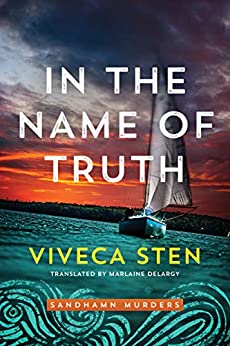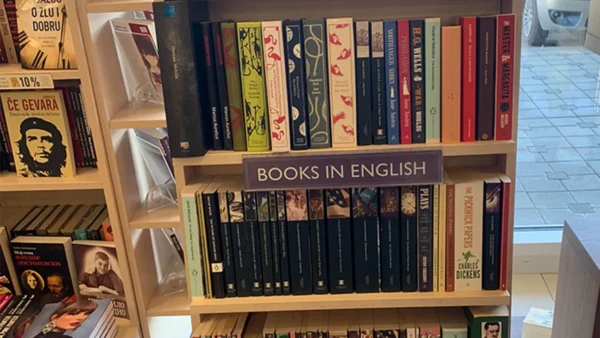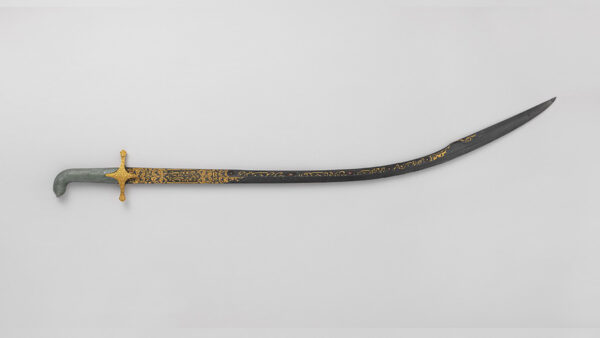In the Name of Truth by Swedish writer Viveca Sten is a well-plotted, intriguing crime novel whose central event is the disappearance of an eleven-year-old boy from a sailing camp on a sandy island in the Stockholm Archipelago.
I’ve never read much crime fiction, so when I heard that fellow book bloggers Emma and Marina Sofia were planning a virtual literary festival to make up for the cancelled Quais du Polar, I thought this would be a good opportunity to try something different.
The book I chose for this event was In the Name of Truth by Swedish writer Viveca Sten. It’s a well-plotted, intriguing crime novel whose central event is the disappearance of an eleven-year-old boy from a sailing camp on a sandy island in the Stockholm Archipelago.
Sten takes quite a long time to build up to the disappearance, however. Most of the first half of the book is devoted to building up the characters and stories in a series of different and apparently unconnected threads.
We spend time with a businessman on trial for fraud, the prosecutor who’s trying to prepare for the case while arguing with her fiancé who’s leaving on a trip to Bangkok a few days before the wedding, a paedophile lurking around a bakery having a disturbing fantasy about a young child, police detective Thomas Andreasson and his failing marriage, shy little Benjamin preparing for a sailing camp he dreads, and more.
At first, I found it difficult to keep up with all the threads and the onslaught of new characters, particularly as there was nothing much of interest happening, except for the creepy menace of the unnamed man watching young children.
But gradually I settled into it and followed the various story strands as they slowly developed, still staying resolutely separate for a long time. And then the child disappears, and one by one they are all brought together.
The slow buildup really paid off in the second half, because by now I really cared about all of the characters and what was happening to them. I had a really vivid sense of the sailing camp in particular, and even the minor characters like the sailing instructors had their own chapters and backstories.
The multiple story threads and shifting perspectives also mean that it’s not all about the cop and his process in solving the crime. That becomes a large part of it in the second half, but there’s plenty going on outside of that too, as the fraud case takes a new turn, with gambling addiction, threats, Lithuanian gangsters, and doubt over who actually defrauded whom.
The resolution of all this is quite satisfying, with all the threads drawn together in a convincing way. I found myself speeding through the pages to see what would happen.
So I am glad I finally dipped my toe into the world of Scandinavian crime fiction in which it seems everyone else has been swimming for ages. Thanks to Emma and Marina Sofia for giving me the nudge!
Will I read more crime fiction now? To be honest, probably not. As enjoyable as this book was, I did feel a bit frustrated by the limitations to what was possible. I don’t think I’m giving any spoilers away here when I say that the crime was solved shortly before the end of the book. And when a cute child goes missing… OK, I am getting into spoiler territory here, so I’ll shut up. The point is that I wasn’t really surprised by anything that happened. Order was restored, the guilty were punished. The only uncertainty is in seeing who was responsible and exactly how they did it and how they end up getting caught. And I had figured out the broad strokes of it quite early.
I’m sure there are crime fiction books that break with these conventions and contain more surprises—I don’t read enough of it to know how many—but this one very much conformed to type. So although it was fun to see how it all worked out, I tend to want more from a book than the neatness of a puzzle solved.
But it’s good to try something different, so I’m glad I took part. Please do visit the organisers’ sites—Book Around the Corner and Finding Time to Write—to see their posts and read more about the festival. Not sure if they’re planning a link-up of posts, but you can find out more there. Or check out the original Quais du Polar festival that inspired it all.
Am I being unfair on crime fiction? Can I judge it when I’ve read so little of it? Are there rule-breaking crime fiction writers I should be reading? Lovers of the genre, please set me straight!





There are 12 comments
Hi Andrew,
Thanks for you participation.
I’m curious about Sten now, I’ll get to mine in the coming weeks.
If you want to read crime fiction with a less black-and-white outcome, you need to read Noir fiction. Ironically, it has more grey areas!
OK, thanks for the recommendation, and for organising the festival! It was fun 🙂
I just want to see one of my covers in your header. Keep safe.
Jennifer
Good to hear from you, Jennifer! It’s been a while—I’ll have to go and see what you’ve been writing lately… I hope everything is OK there. I’m happy to see that the numbers in Jamaica are still quite low, and I hope they stay that way. Be well, and thanks for stopping by again!
Hahahaha Even though I am spoiler-phoblc, part of me really wants to know what you were going to say about that cute child who’s gone missing.
I’m not up on crime fiction enough to effectively challenge your sense of the genre. But I can say that the series by Lene Kaaberbol and Agnete Friis (which begins with The Boy in the Suitcase) does aim to stretch the genre (not only by using mulitple POVs which sometimes frustrate those crime readers who crave a more traditional narrative style, but also by focusing on social justice issues).
The series is published by Soho Crime, which seems to have a more diverse set of crime writers than some (e.g. Kwei Quartey, Okey Ndibe), one of whom I recall hearing in an interview about the fact that it was easier to get people to think about humanitarian issues by putting them into a mystery novel.
Ah, thanks for the recommendations! That series does sound good. I think maybe I’m probably being unfair on crime fiction—I’ve read so little of it that I’m basing my opinions more on TV series, which can be very formulaic. I used to watch Criminal Minds for a while, until I realised that every episode was exactly the same!
Ah, yes. That show wouldn’t challenge your current theory. I tried a few ep’s when it was new, but it’s not for me either. If that (and this single) novel has been your experience so far, I’d say you can trust that there are both books and shows in the genre that would suit you better.
Which isn’t to say that you will want to/should delve into that territory, but for anyone with an interest in social justice and fairness, it’s an area which can expose inequities and pitfalls and damaged people and systems quite effectively. My main reason for avoiding the genre is that I have seen and read quite a few good books/shows and I find the pacing terribly addictive (a nice “problem” to have)–it becomes temporarily hard to read/watch other kinds of things. 😮
I’ve read and watched more than that, but not nearly as much as in other areas. I do like the idea of exposing inequities and pitfalls, so I’ll look out for that kind—like the series you mentioned. I also like books that play with the genre and break the rules, like this Ghanaian book I read years ago: https://andrewblackman.net/2011/12/tail-of-the-blue-bird-by-nii-ayikwei-parkes/.
That’s an interesting point about the pacing—I hadn’t thought of it that way, but I’m sure it would affect your expectations in other types of books too!
Thank you so much for taking part, Andrew. I’ve seen Viveca Sten at Quais du Polar (always popular with the crowds) but never read her. I know I am biased, but I believe that crime fiction is such a broad category that it is difficult to generalise. There are a lot of formulaic books out there, almost interchangeable, there are also delightfully fun and escapist ones, and the ones I like most usually say so much about the societies in which they take place. The boundaries of the crime genre are very elastic – it contains worlds.
You know, I think you’re right. I don’t know the genre very well, so it’s probably not a good idea to generalise about it. I think what I was trying to get at is the idea that even when a book is complex and well written, like In the Name of Truth, it still is kind of constrained by the setup: we know that a crime will be committed, and by the end of the book, we’ll discover who did it and why. I’m sure there are crime novels that break those rules, but my sense is that most don’t. So even though I wouldn’t call this a formulaic book by any means, there was still something that I missed—I like a book where it could go absolutely anywhere.
But hey, I’m starting to generalise again 🙂 I should probably read more within the genre. I’d like to find some rule-breakers, and I like the sound of ones that say a lot about the society. Any recommendations? Thanks again for organising the event with Emma.
I have a bit of a vested interest in this one, since I translated it, but this is certainly a rule breaker. More of a political and social commentary than a whodunit crime novel.
https://www.amazon.co.uk/Sword-sharp-international-political-thriller-ebook/dp/B0872C8LFY
Sadly, only available as an ebook at the moment, as we are having some issues with printing and distribution, but hopefully available soon in paperback too.
Thanks Marina! It sounds ideal for me. I’ve met a lot of Romani people in my travels around Europe and have learnt quite a bit about the discrimination they face, so I’ll be interested to see how this novel treats the issue.